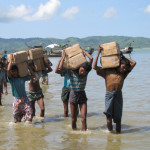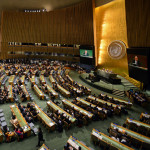
-
May 22By: Engy Abdelkader, JD, LL.M.The United Nations (UN) has long characterized the Rohingya as the world’s most persecuted population. Historically, the Burmese viewed the ethnic and religious minority as illegal immigrants permitted entry by their former British colonizers. Such historical context informs contemporary views of the group as “foreigners.” And that has helped justify decades-long persecution by both private and public actors culminating in the Rohingya’s legal exclusion as citizens and other discrimination codified as law. Despite the group’s pre-colonial ancestral ties to the land, messaging that Rohingya are “outsiders,” “Bengalis” and even, “terrorists,” has helped the government justify mass atrocity crimes. The current humanitarian and human rights crises also implicate national security.
More » -
January 9By: Sarah Paoletti, Professor of Practice and Director of the Transnational Legal ClinicIn 2017, the UN and its members, as well as intergovernmental and non-governmental agencies, committed themselves through regional and international dialogue to developing a new framework to address the challenges confronted in and by migration. As the world recognized the need for greater international collaboration, the Trump Administration moved the United States towards a more isolationist approach while implementing restrictive and enforcement-oriented policies and practices, in a notable shift from prior administrations. As we head into 2018, the United Nations and its members have set out to draft and agree upon an international cooperative framework for managing migration, while also ensuring that the rights of migrants are respected, protected and fulfilled. 2018 will be the year to see whether the political resolve exists to meet this goal, with or without the United States’ participation.
More »

